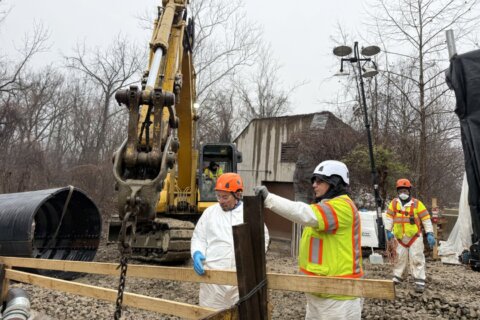The Montgomery County, Maryland, council voted to allow the installation of 5G cell towers.
The vote was 7-2 with most council members voting to approve the zoning text amendment that allows 5G antennas to be placed on existing utility poles. They could also be allowed on existing utility or light poles that are scheduled for replacement.
But among the most contentious features of the change is that the cell towers could be placed within 30 feet of homes.
Citizens groups, including the Montgomery County Coalition to Protect Neighborhoods, argued that the measure was being “rammed” through over the objection of residents. Among their concerns is the safety of 5G technology and the aesthetics of the towers.
The two council members who voted against the measure, Will Jawando and Sidney Katz, said they wanted to wait for the outcome of a federal-court case that asked the Federal Communications Commission to update its guidelines tied to radio frequency safety standards.
“I’ve weighed on this a lot, and I don’t know whether it’s safe or not” Jawando, referring to 5G cell towers, told his colleagues.
Council member Gabe Albornoz objected to the notion that Tuesday’s vote was rushed.
“I think that this has clearly been deliberated and discussed for over six years,” Albornoz said.
Also in favor of the move to allow 5G technology, Council member Craig Rice, who said if a council member supported equity, “You should be supporting 5G. You should be rallying and saying we need to do this for all of the poor Black and brown people who have no access to high-quality and high-speed broadband right now.”
Council President Tom Hucker called the legislation “an unusual matter,” explaining that the county was bound to comply with a federal order and so had little room to amend the legislation.
“We don’t really have the option of remaining out of compliance surrounding 5G,” Hucker said.
He said the county’s attorney made it clear that should the council reject the measure, they would be out of compliance and would be open to a legal challenge.
“I imagine none of my colleagues like being told by a federal agency we have to take action and our authority’s very limited,” Hucker said. “But that’s where we are.”








